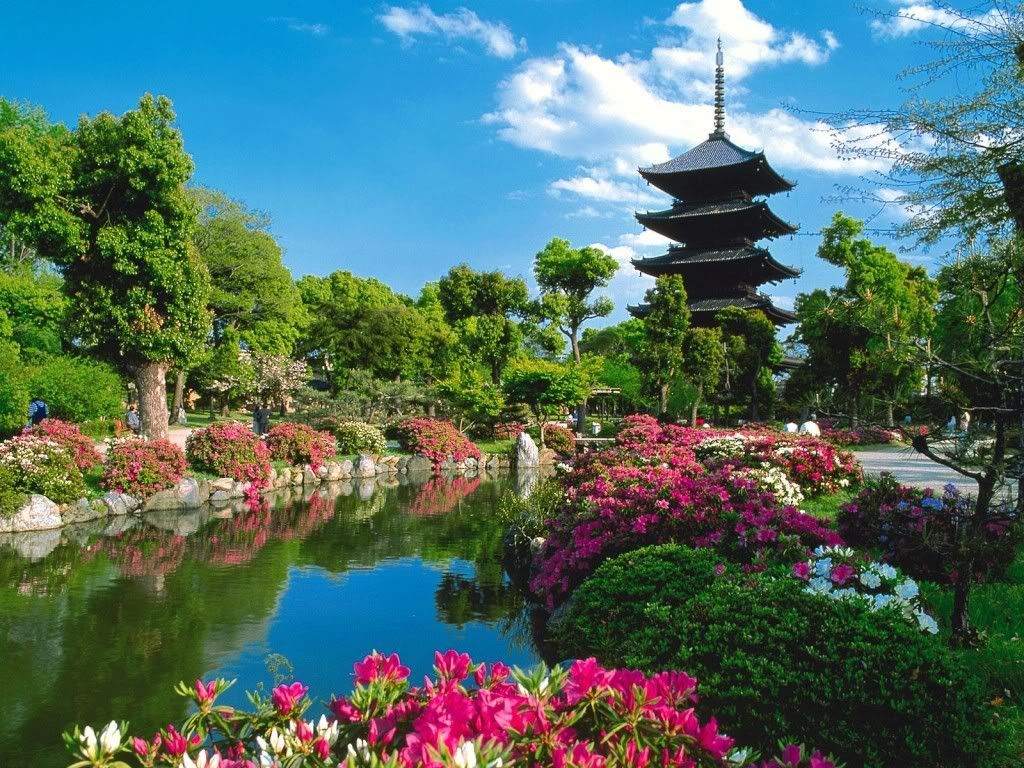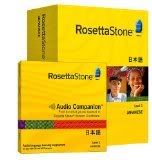As Japan has been an important economic and technologically advanced country for many decades, most people have heard about the devastating events which have occurred in its history. On a yearly recurring basis, Japan is plagued with its fare share of natural disasters. Most vivid to mind comes the recent Great East Japan Earthquake and the following Tsunami. Now almost three years after this terrible event the Japanese have mostly recovered from this traumatic event. Only the people who are directly related and those who live in the hardest hit areas are reminded of the earthquake. however, life goes on and they have to brace themselves and get ready for future disasters such as typhoons, of which twenty to thirty threaten the mainland every year. only a couple of typhoons actually hit the main island of Japan. The others just scrape the lower islands or just the east coast but bring with them severe winds and torrential rain.
It is probably because of these annually recurring disasters that Japanese have the strength to recover very quickly. A lot of this recovery strength comes from their ability to cooperate and work together in order to rebuild whatever was broken or damaged during the natural disaster. Whole communities put their skills to work and strive to regain the normal way of life they had before the disaster.
Japanese strength of recovery was first noticed after the second world war, after so many pars of the country were destroyed, the Japanese came back as the strongest economy in the world. This could only have been accomplished through a strong will, long working hours, and the ability to work together towards a single goal.
All About the Japanese Culture
Wednesday, March 5, 2014
Monday, March 2, 2009
Poor English Skills
Will Japanese people ever learn to speak English? Somehow it is still not completely understood by the Japanese that with being a leading world economy comes the need to communicate with a whole bunch of foreign people. At secondary schools, most students think that they'd never need to ability to speak English because they live on an island and have no hunger to travel abroad. But, the thing is that they never know when the day comes when they HAVE to go abroad.
Let's take for example the Academy Awards. A Japanese film maker produces a Japanese film. Oh, what? Wow!! We've been nominated for an Oscar!! "let's go to the Academy Awards in the States and try not to make too much eye-contact because if they start asking questions we wouldn't be able to answer... And they go off to the Oscars to find out how this story continues. So, they win and Oscar for best foreign film! Now they have to get on stage, and there's a microphone... this means we have to speak (English??). Here's Mr. Yojiro Takita the director of Okuribito (Departures) giving his speech...
Here in Japan this was viewed with mixed feelings. For Japanese who have the same English ability level as these guys it must sound great and they'll just be happy that the Oscar was won by Japan. However, for those with a bit more understanding of the English language were deeply embarrassed by this very low level, un-prepared speech.
Next, they end up in front of the "thank you cam," and there is a chance for the rest of the actors to show off their English skills (Masahiro Motoki, Ryoko Hirosue, Kimiko Yo)

OSCARS 2009 Departures FOREIGN LANGUAGE FILM ThankYouCam
Then there is one more nomination for Kunio Kato for best short animated film. It almost seems that he might have done some preparations because his final line was really original. Have a look at Kunio Kato's Oscar speech.

Oscar Speech - Kunio Kato For Best Short Animated Film
For those of you not speaking Janglish, here's what he said:
"So heavy. Thank you very much. Thank you, my supporters. Thank you, all my staff. Thank you, my pencil. Thank you, Academy. Thank you, animation. Thank you my company, Robot. Domo arigato, Mr. Roboto. Thank you very much."
Let's take for example the Academy Awards. A Japanese film maker produces a Japanese film. Oh, what? Wow!! We've been nominated for an Oscar!! "let's go to the Academy Awards in the States and try not to make too much eye-contact because if they start asking questions we wouldn't be able to answer... And they go off to the Oscars to find out how this story continues. So, they win and Oscar for best foreign film! Now they have to get on stage, and there's a microphone... this means we have to speak (English??). Here's Mr. Yojiro Takita the director of Okuribito (Departures) giving his speech...
Here in Japan this was viewed with mixed feelings. For Japanese who have the same English ability level as these guys it must sound great and they'll just be happy that the Oscar was won by Japan. However, for those with a bit more understanding of the English language were deeply embarrassed by this very low level, un-prepared speech.
Next, they end up in front of the "thank you cam," and there is a chance for the rest of the actors to show off their English skills (Masahiro Motoki, Ryoko Hirosue, Kimiko Yo)

OSCARS 2009 Departures FOREIGN LANGUAGE FILM ThankYouCam
Then there is one more nomination for Kunio Kato for best short animated film. It almost seems that he might have done some preparations because his final line was really original. Have a look at Kunio Kato's Oscar speech.

Oscar Speech - Kunio Kato For Best Short Animated Film
For those of you not speaking Janglish, here's what he said:
"So heavy. Thank you very much. Thank you, my supporters. Thank you, all my staff. Thank you, my pencil. Thank you, Academy. Thank you, animation. Thank you my company, Robot. Domo arigato, Mr. Roboto. Thank you very much."
Pocari Sweat
Probably most foreigners who either visit or start living in Japan, will soon stat to ask this question to their Japanese friends: “Why choose SWEAT for the name of a soft drink?” For foreigners it is a disgusting first impression which brings about hesitation to actually purchase a soft drink named “Pocari Sweat.” After I had been in Japan for about three or four months I just had to ask one of my students in my English class. She started grinning and giggling but wasn’t able to answer my question. Her English communication skills were enough to explain it to me if she knew, but she just  had never, like any other Japanese, thought about the deeper meaning of the word. Curiosity about this sports drink grew and I asked almost all of my students that week. Unfortunately I didn’t get beyond the assumption that it is because both are Fluids…
had never, like any other Japanese, thought about the deeper meaning of the word. Curiosity about this sports drink grew and I asked almost all of my students that week. Unfortunately I didn’t get beyond the assumption that it is because both are Fluids…
I gave up inquiring about Pocari Sweat when even my wife who well educated couldn’t deliver a satisfying answer.
Recently (five years later) I remembered this quest for an answer and started doing some more research. My Japanese language proficiency level has grown and have learned that Pocari or when written in Japanese Katakana or Hiragana becomes Pokkari. Pokkari refers to a white cloud floating in a blue sky. So I started wondering about the design of Pocari Sweat’s logo, which is something like a white cloud floating against a blue sky. But then what is the relation between white clouds and a sports drink?
about the design of Pocari Sweat’s logo, which is something like a white cloud floating against a blue sky. But then what is the relation between white clouds and a sports drink?
How about “sweat” then? Well, speculating about that is easier than Pocari. Pocari Sweat is advertised as being a good sports drink because it contains electrolytes such as sodium, potassium. So when we sweat we should replace the lost fluids and electrolytes by consuming Pocari Sweat. So, even Japanese people with only a little English comprehension can understand its purpose easily.
But, after more research I found new information from the source (Otsuka Pharmaceutical Co. Ltd.). Sweat is used because for Japanese people it refers to diligence, making efforts, and doing something refreshing. So in the end it is just a case of cultural difference.
Now for Pocari or Pokkari: According to a spokes person at the source, it carries no particular meaning, other than that for Japanese people; it sounds relaxing, easeful, and light.
 had never, like any other Japanese, thought about the deeper meaning of the word. Curiosity about this sports drink grew and I asked almost all of my students that week. Unfortunately I didn’t get beyond the assumption that it is because both are Fluids…
had never, like any other Japanese, thought about the deeper meaning of the word. Curiosity about this sports drink grew and I asked almost all of my students that week. Unfortunately I didn’t get beyond the assumption that it is because both are Fluids…I gave up inquiring about Pocari Sweat when even my wife who well educated couldn’t deliver a satisfying answer.
Recently (five years later) I remembered this quest for an answer and started doing some more research. My Japanese language proficiency level has grown and have learned that Pocari or when written in Japanese Katakana or Hiragana becomes Pokkari. Pokkari refers to a white cloud floating in a blue sky. So I started wondering
 about the design of Pocari Sweat’s logo, which is something like a white cloud floating against a blue sky. But then what is the relation between white clouds and a sports drink?
about the design of Pocari Sweat’s logo, which is something like a white cloud floating against a blue sky. But then what is the relation between white clouds and a sports drink?How about “sweat” then? Well, speculating about that is easier than Pocari. Pocari Sweat is advertised as being a good sports drink because it contains electrolytes such as sodium, potassium. So when we sweat we should replace the lost fluids and electrolytes by consuming Pocari Sweat. So, even Japanese people with only a little English comprehension can understand its purpose easily.
But, after more research I found new information from the source (Otsuka Pharmaceutical Co. Ltd.). Sweat is used because for Japanese people it refers to diligence, making efforts, and doing something refreshing. So in the end it is just a case of cultural difference.
Now for Pocari or Pokkari: According to a spokes person at the source, it carries no particular meaning, other than that for Japanese people; it sounds relaxing, easeful, and light.
Saturday, February 28, 2009
Patoka Police Cars
Here in Japan the police force drives around in a variety of different brand cars. All of them are of course Japanese brands such as Toyota, Honda, Nissan, and Mitsubishi. As in many other countries the basic colors are black and white on top. A particular design element is that the black from the bottom forms something like a triangle at the front, pointing toward the window. The red lightbars on the roof are usually slightly elevated.
 The Japanese police car is fitted with red lightbars only. This can make it quite confusing since all other emergency services such as ambulances, fire engines, road service vehicles etc. all use the same red lightbars. Often I am driving with loud music on, which doesn't really help in distinguishing and ambulance from a police car by the sound of their sirens. I have to care fully check my mirrors and be quick to decide whether I should slowdown or pull over. The sirens of all emergency service vehicles are not very loud which gives the average driver (with or without music on) only a few seconds to react after spotting the red lights.
The Japanese police car is fitted with red lightbars only. This can make it quite confusing since all other emergency services such as ambulances, fire engines, road service vehicles etc. all use the same red lightbars. Often I am driving with loud music on, which doesn't really help in distinguishing and ambulance from a police car by the sound of their sirens. I have to care fully check my mirrors and be quick to decide whether I should slowdown or pull over. The sirens of all emergency service vehicles are not very loud which gives the average driver (with or without music on) only a few seconds to react after spotting the red lights.
However, the most disturbing part for me is not that the sirens are barely audible, but it is the fact that the police cars in Japan seem to always drive around with the red lights on. This is good for me because when I spot some flashing red light up the road ahead I can slow down to the legally allowed maximum speed. The stupid thing is that everyone knows this and so about 80 percent of all drivers on the road over speed on a daily basis, including me. As long as we don't spot any red lights it means full throttle on every road...
 The Japanese police car is fitted with red lightbars only. This can make it quite confusing since all other emergency services such as ambulances, fire engines, road service vehicles etc. all use the same red lightbars. Often I am driving with loud music on, which doesn't really help in distinguishing and ambulance from a police car by the sound of their sirens. I have to care fully check my mirrors and be quick to decide whether I should slowdown or pull over. The sirens of all emergency service vehicles are not very loud which gives the average driver (with or without music on) only a few seconds to react after spotting the red lights.
The Japanese police car is fitted with red lightbars only. This can make it quite confusing since all other emergency services such as ambulances, fire engines, road service vehicles etc. all use the same red lightbars. Often I am driving with loud music on, which doesn't really help in distinguishing and ambulance from a police car by the sound of their sirens. I have to care fully check my mirrors and be quick to decide whether I should slowdown or pull over. The sirens of all emergency service vehicles are not very loud which gives the average driver (with or without music on) only a few seconds to react after spotting the red lights.However, the most disturbing part for me is not that the sirens are barely audible, but it is the fact that the police cars in Japan seem to always drive around with the red lights on. This is good for me because when I spot some flashing red light up the road ahead I can slow down to the legally allowed maximum speed. The stupid thing is that everyone knows this and so about 80 percent of all drivers on the road over speed on a daily basis, including me. As long as we don't spot any red lights it means full throttle on every road...
Subscribe to:
Posts (Atom)







